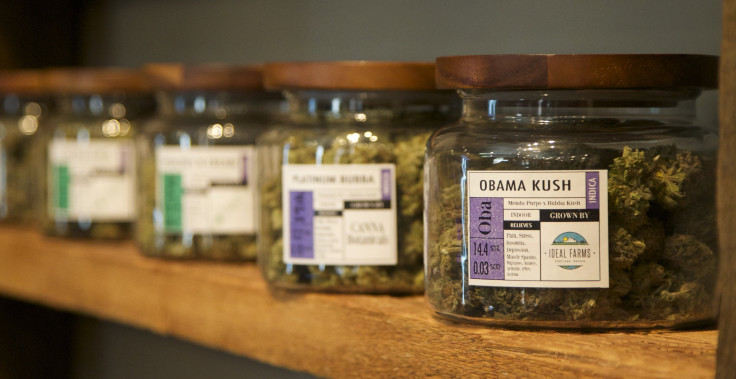
Medical marijuana facilities across Oregon are gearing of for a flood of recreational users. On Thursday, existing weed dispensaries will be allowed to sell cannabis to adults who don’t have a medical condition. Adding another state to the legal weed column, Oregon’s regulation of pot is emboldening drug legalization advocates nationally and may add to a weakening of America’s anti-drug arguments abroad. Under the law, adults 21 and over will be allowed to buy up to a quarter-ounce of cannabis “buds,” as well as THC-containing candies, brownies, and other prepared products.
Purely recreational pot shops won’t open until fall of next year. In the meantime, existing medical dispensaries will get a jump on business. Lawmakers hope that it will give existing mom and pot -- errr -- mom and pop stores a head start against Big Marijuana.
Almost two-thirds of the states 345 existing pot stores have said that they are opening their doors to recreational users this week, the AP reports. However not all communities are embracing legal weed.
Some have taken advantage of a provision in the Oregon law that allows them to opt out. Medical marijuana will still be available, but in more conservative towns such as East Oregon’s La Grande, recreational pot is barred for now.
La Grange Police Chief Brian Harvey bemoans the idea of legal marijuana for recreational use, saying it sends the wrong message.
"[A] store that is no different than a grocery store; you can walk in and get your marijuana. What message does that send to your kids," Harvey told reporter Chris Lehman of Northwest News Network.
National Support For Drug Law Reform
Not all law enforcement oppose liberalization of drug laws. Nationally, a group of current and former police and narcotics agents are actually calling for the U.S. to decriminalize and regulate harder drugs like heroin and cocaine.
Retired police officer Maj. Neill Franklin is the executive director of Law Enforcement Against Prohibition (LEAP), a group of law enforcement officials opposed to the war on drugs. He says that Oregon’s laws to regulate and tax marijuana make the drug safer.
“If we were to apply this same logic to heroin and other drugs so that people with addictions knew what they were getting, we’d not only see the public safety improvements we’ve seen in Colorado and Washington, we’d see thousands of lives saved every year.”
Oregon is the third U.S. allow adults to purchase marijuana of recreational use, following Colorado and Washington. Alaskan residents also voted to institute legal pot, but the state has yet to implement a regulatory scheme.
A Native-American tribe in South Dakota recently opened a marijuana resort. Washington D.C. legalized possession and cultivation of marijuana, but hasn’t sanctioned sales of buds or seeds.
International Implications Of State Marijuana Laws
Drug liberalization at the local level in the U.S. has had international implications. Uruguay legalized and regulated marijuana in 2013, criticizing Colorado’s law as poorly constructed . As we reported last week, Brazil is considering decriminalizing all drugs.
Even stalwart partners in America’s global counter-narcotics efforts are rethinking their involvement.
In January, Colombian president Juan Manuel Santos openly questioned the decades-long partnership with the U.S., despite his country receiving over $9 billion in military aid over the past 15 years aimed at combating the drug trade.
“How can [we] tell a Colombian peasant who is planting a coca or marijuana leaf that we’re going to throw him in jail, while in many countries in the world, and in various U.S. states, this marijuana is legal, and increasingly tolerated,” Santos said.
In 2010, Santos admitted to smoking marijuana in the 1970s while studying at the University of Kansas. Barack Obama has also admitted to using the drug, but opposes marijuana legalization.
© 2025 Latin Times. All rights reserved. Do not reproduce without permission.




